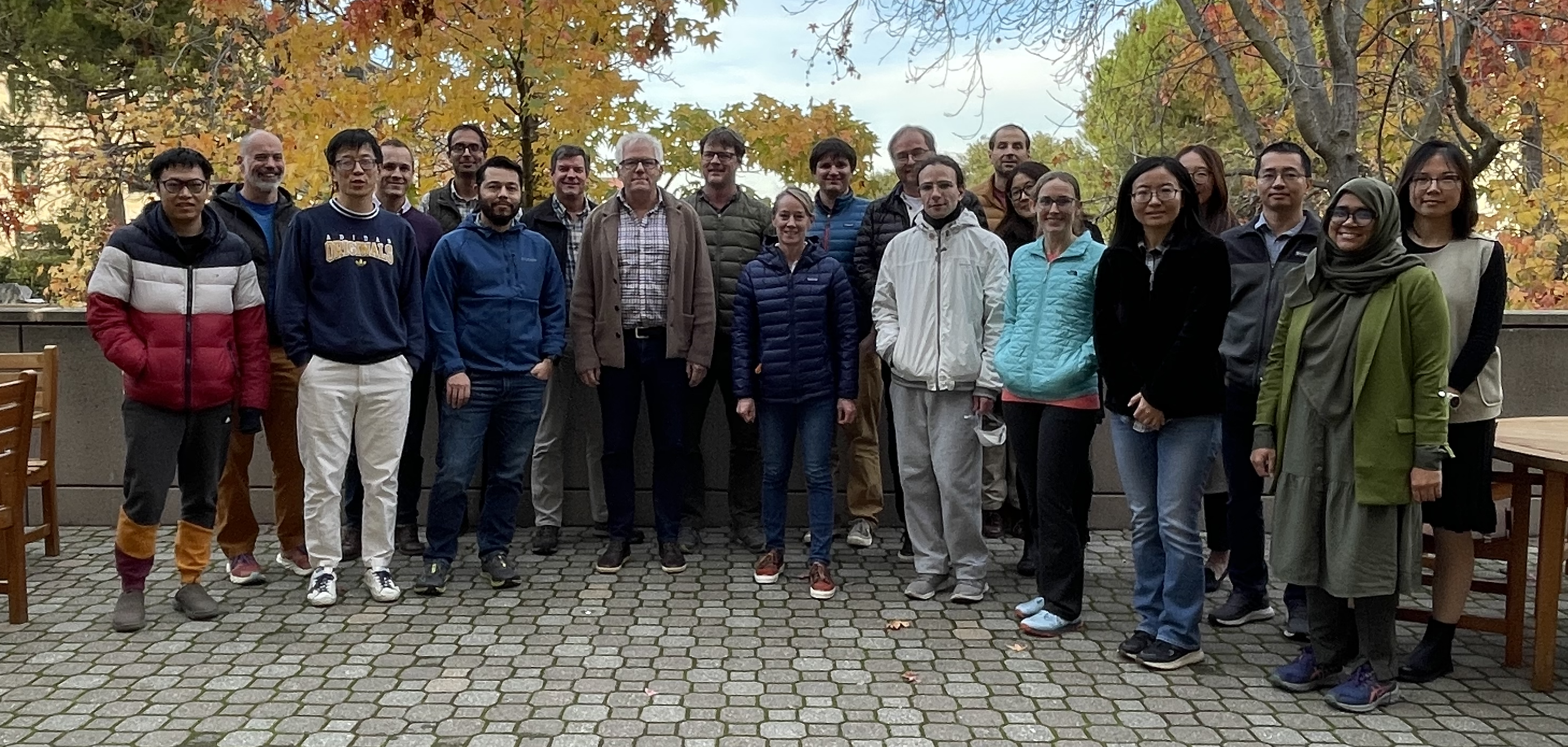December 9-10, 2023
Stanford University
Green Earth Sciences Building
367 Panama Mall Stanford
Room 365
Campus Map

Meeting Agenda:
Day 1: Saturday Noon-5PM (PST)
| Wall Clock (PT) | Elapsed Time (min) | Talks/Activity |
|---|---|---|
| 12:00 | 15 | Introductions and Project Overview |
| 12:15 | 45 | Icebreaker Activities |
| SFA Partnership Updates | ||
| 1:00 | 8+2 | LBNL Watershed Function SFA: Sergi Molins |
| 1:10 | 8+2 | ORNL Watershed Dynamics and Evolution SFA: Scott Painter |
| 1:20 | 8+2 | PNNL River Corridor SFA: Xingyuan Chen |
| 1:30 | 8+2 | Shared Infrastructure: David Moulton |
| 1:40 | 20 | Group discussion and activities |
| 2:00 | Break (30 min) | |
| Hands - On: Integrated Hydrology + RTM (Lead: Sergi Molins) Duration: 2 - 2.5 hours Details: Including objectives and instructions are in available in the README.md |
||
| 2:30 | Set up an integrated tracer transport problem in a column building on ATS integrated hydrology inputs (Sergi) | |
| Set up and test a geochemical problem in PFLOTRAN (Glenn) docker run -p 8888:8888 pflotran/jupyter:ideas-dec23-all-hands | ||
| Set up a reactive transport problem building on the column simulation and PFLOTRAN inputs, LIVE! debugging (Sergi and Glenn) | ||
| Set up more complex simulations: the hillslope example (Sergi) | ||
| Break | ||
| Adjourn |
Day 2: Sunday 9:00 AM – 5PM (PST)
| Wall Clock (PT) | Elapsed Time (min) | Talks/Activity |
|---|---|---|
| Flash Talks | ||
| 9:00 | 4+1 | Phong Le (ORNL) A Multiscale Integrated Model for Transport in River Basins |
| Saubhagya Rathore (ORNL) Spatially Resolved Integrated Hydrology Modeling for Managed Watersheds | ||
| Jesus Gomez Velez (ORNL) Nitrate uptake in the benthic biolayer of streams and rivers across Conterminous US | ||
| Zhi Li (PNNL) Modeling the fates of pyrogenic carbon in the wildfire-impacted watersheds using ATS-PFLOTRAN | ||
| Tasneem Ahmadullah (PNNL) Organic Carbon Speciation in Microbial Respiration Using Lambda-PFLOTRAN Pipeline | ||
| Mingjie Shi (PNNL) Ecosystem responses to wildfires in the Columbia River basin | ||
| Lijing Wang (LBNL) Understanding Hydrologic Variability in Mountainous Hillslopes: From Intensive Monitoring to Scaling Up. | ||
| Dipankar Dwivedi (LBNL) Reactive Transport Benchmarks for Problems Involving Gaseous Species. | ||
| Andrew Graus (LBNL) Status update on coupling a fine-scale process-based ecosystem model (EcoSIM) with the Advanced Terrestrial Simulator (ATS). | ||
| Luwen Wan (Stanford) Quantifying beaver-induced water storage across scales. | ||
| Discussion | ||
| 10:00 | Break (30 min) | |
| Hands-On: WW and Mixed-Polyhedral meshing (Lead: Saubhagya Rathore) Duration: 2.5 hours Details: Including objectives and docker setup is here. |
||
| 10:30 | Introduction to Watershed Workflow | |
| Exploring Key Conceptual Objects | ||
| 11:15 | Hands-On Session: Generating Stream-Aligned Mixed-Polyhedral Mesh | |
| Defining Regions and Labeled Sets | ||
| 12:15 | Debugging and Manipulating Key Objects | |
| Discussion and Feedbacks | ||
| 1:00 | Lunch (1 hour) | |
| Hands-On: IHSI subsetting CONUS 2.0 data and simulation output Duration: 2.5 hours Details: Including objectives and docker instructions are in available in the README.md |
||
| 2:00 | Overview of new datasets, CONUS2 | |
| Presentation of the new tools, the HydroFrame and HydroData and SubsetTools frameworks | ||
| Hands-on Session: subset tools/hf_hydrodata sessions with Docker | ||
| Discussion/Feedback | ||
| 4:30 | Group discussion: What’s next, what do you need, what’s slowing you down? (~1 hour) | |
| 5:00 | Adjourn |